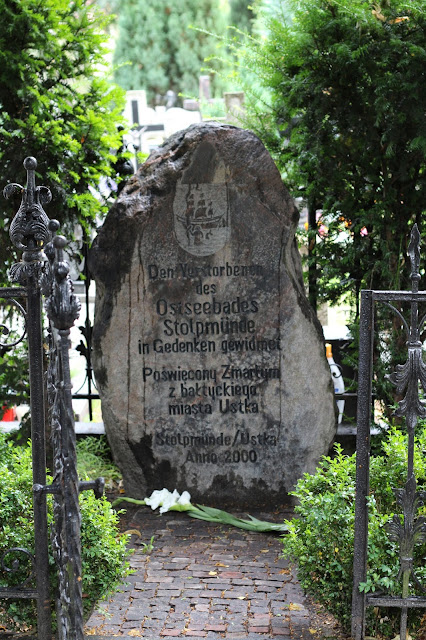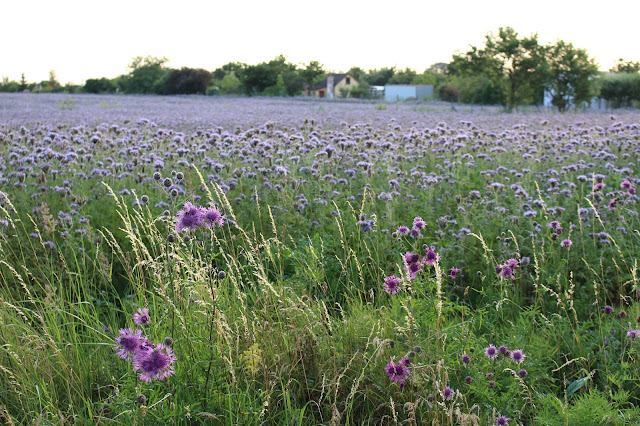Barbara, the new owner, was keen to protect the house's heritage. She even preserved the old German family cemetery up on the hill.
 |
| Old German graves in the family cemetery by the manor house
One of the former inhabitants who fled as a child in '45, an elderly German lady, now comes once a year to visit.
|
 |
| Rather spooky inscription - "I called you by your name, you are mine." |
Barbara has a passion for manor houses
and has crammed the place with antiques. I had actually planned to buy some antiques here myself, but in the end I couldn't bring myself to do it. From a rational point of view, it's of course much better for these items to be used and treasured. But I wouldn't feel comfortable knowing that this or that bargain was originally looted from people running for their lives, especially as the events in the former East Prussia were particularly bloody. It was the first bit of land taken by the Red Army, so the people there bore the full brunt of revenge for German atrocities.
I spent a lot of time thinking about my granny - the contrast between her luxurious upbringing and her post-war life in Berlin, which was very modest. What would she have made of this trip? To be honest, she would probably have been a bit baffled, especially by the walk. Why walk when you can take a comfortable train... But she would have liked the photos, I think, and been pleased to hear that the old houses are being appreciated again.
I'm now back in London. The headlines are all about the refugee crisis. Maybe a good time to remember that so many of our own families were refugees at one time or another?
I'm now back in London. The headlines are all about the refugee crisis. Maybe a good time to remember that so many of our own families were refugees at one time or another?














































